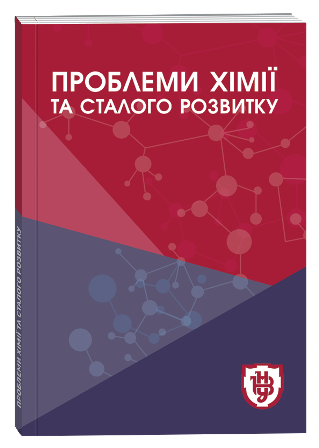PROFESSIONAL AND PEDAGOGICAL CULTURE OF THE TEACHER AS A CONDITION FOR THE SUCCESSFUL TRAINING OF THE FUTURE SPECIALIST
DOI:
https://doi.org/10.32782/pcsd-2022-3-6Keywords:
pedagogical activity, professional and pedagogical culture, personality of the teacher, pedagogical creativityAbstract
The article reveals the theoretical aspects of the formation of a teacher's professional and pedagogical culture which is the main condition for the successful training of a future specialist. The components of professional and pedagogical culture are defined, namely scientific knowledge, erudition, professional ethics, communicative culture, professional competence, pedagogical skill, pedagogical technique, positive personal qualities (spiritual wealth, humanism, justice, tolerance, openness, optimism, striving for self-improvement), aesthetic culture, positive image. Professional-pedagogical culture is revealed in the context of the socio-pedagogical phenomenon and is considered as an integrated unity of such structural components of the teacher's personality as axeological, technological and personal-creative. The axeological component is a set of pedagogical values as norms that regulate the teacher's professional and pedagogical activity; this aggregate has a holistic character and acts as a cognitive-active system that determines the relationship between the views on the problems of professional education and the professional and pedagogical activity of the teacher of the educational institution. The technological component includes methods and techniques of pedagogical activity which is technological in nature. The technology of the teacher's professional and pedagogical culture is considered as a process of solving various pedagogical tasks: analytical-reflective, constructive-prognostic, organizational-active, evaluativeinformational, corrective-regulatory. The personal-creative component is a mechanism for mastering professional and pedagogical culture and its implementation in the creative process. The study found that the formation of professional and pedagogical culture will be successful when using various types of work that are performed with students.
References
Андрущенко В. П. Вища освіта у пост-болонському просторі: спроба прогностичного аналізу. Філософія освіти. № 2. 2005. с. 6–19.
Гринькова М. В. Формування педагогічної культури майбутнього вчителя (теоретичний та методичний аспекти). Харків: Основа. 1998. 300 с.
Зязюн І. Естетична регуляція ціннісної свідомості. Вища освіта України. 2005. № 3. С. 5–11.
Иванова Т. В. Культурологическая подготовка будущего учителя : монография. Киев: ЦВП, 2005. 282 с.
Лисенко Н. В. Самостійна робота студентів у процесі впровадження кредитно-модульної системи оцінювання знань. Педагогічний дискурс: зб. наук. праць. Хмельницький: ХГПА. 2007. Вип. 1. С. 89–92.
Педагогічна майстерність : підруч. / І. А. Зязюн, Л. В. Крамущенко, І. Ф. Кривонос та ін.; ред. І. А. Зязюн. Київ : Вища школа, 1997. 349 с.
Пономарьов О. С. Культура професійної діяльності в системі категорій педагогіки вищої школи. Теорія і практика управління соціальними системами. 2012. № 4. С. 84–91.
Сидоренко Т. Д. Дидактичні основи формування педагогічної культури майбутнього вчителя : автореф. дис. канд. пед. наук : 13.00.09 «Теорія навчання» / Криворізький держ. пед. ун-т, Кривий Ріг, 2011. 36с.
Трофімук К. В. Професійна культура в контексті формування педагогічних цінностей майбутніх викладачів: теоретичний аспект. Педагогіка формування творчої особистості у вищій і загальноосвітній школах. 2014. Вип. 39(92). С. 396–402.
Чайка В. М. Підготовка майбутнього вчителя до саморегуляції педагогічної діяльності : монографія / ред. Г.В. Терещук. Тернопіль :ТНПУ. 2006. 275 с.







